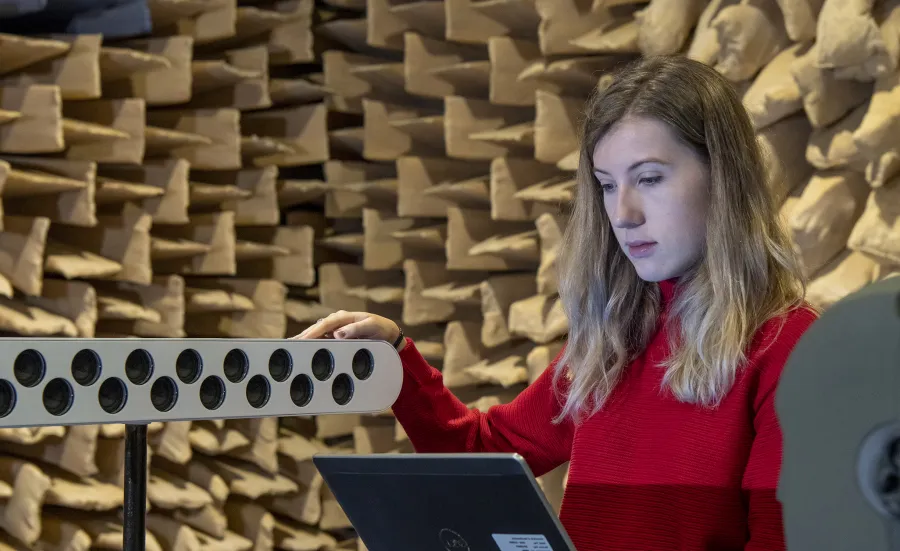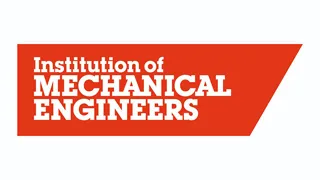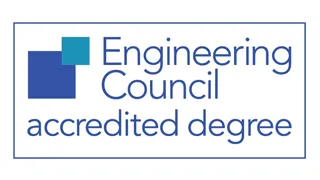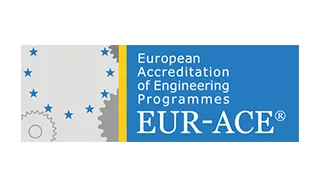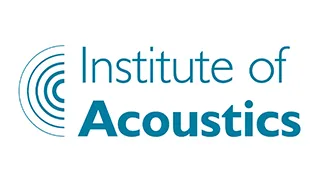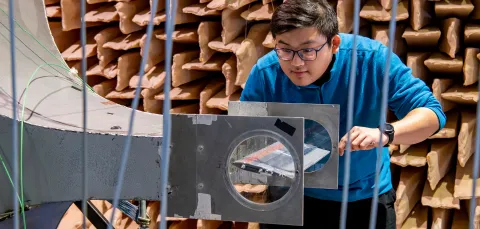About this course
Learn how to make the world sound better, with a specialist knowledge of acoustics, vibration and how they affect us. This acoustical engineering degree specialises in sound and our response to it. You'll study at the Institute of Sound and Vibration Research, a leading centre for Acoustical Engineering.
This acoustical engineering course looks at how acoustics - the science of sound and vibration - is applied in technology. It has many applications, including:
- design of cars
- 3D-audio systems
- designing concert halls
- reducing aircraft noise
- using ultrasound to fight antimicrobial resistance
This UK acoustic engineering degree includes practical work throughout, including lab work. Our projects will allow you to design, build and test components and systems with enhanced acoustic properties. You'll gain the confidence to creatively solve engineering problems.
You'll have access to our world-class acoustic and engineering facilities, which include:
- dedicated design studios and workshops
- anechoic and reverberation chambers
- an aeroacoustic wind tunnel
- a listening room
- a virtual acoustics laboratory
- a professional manufacturing centre
Year in industry
Enhance your employability by taking this course with a paid industrial placement year.
Apply using:
- Course name: Acoustical Engineering with Industrial Placement Year
- UCAS code: H34P
You'll spend this extra year at an engineering firm, applying the skills and knowledge you've learned so far.
The fee is 20% of the standard annual tuition fee.
We regularly review our courses to ensure and improve quality. This course may be revised as a result of this. Any revision will be balanced against the requirement that the student should receive the educational service expected. Find out why, when, and how we might make changes.
Our courses are regulated in England by the Office for Students (OfS).
Accreditations
This course is accredited by the Institution of Mechanical Engineers (IMechE) as meeting the academic requirement, in part, for Chartered Engineer registration.
An introduction to Acoustical Engineering
Course locations
This course is based at Highfield and Boldrewood.
Awarding body
This qualification is awarded by the University of Southampton.
Download the Course Description Document
The Course Description Document details your course overview, your course structure and how your course is taught and assessed.
Entry requirements
For Academic year 202627
A-levels
AAB including mathematics and another accepted science subject
A-levels additional information
The following are considered to be an acceptable science subject: Biology, Chemistry, Physics, Maths, Further Maths, Psychology, Statistics, Environmental Science, Environmental Studies, Geography and Geology.
Offers typically exclude General Studies and Critical Thinking.
Applicants who have not studied the required subjects can apply for the Engineering/Physics/Mathematics Foundation Year
A-levels with Extended Project Qualification
If you are taking an EPQ in addition to 3 A levels, you will receive the following offer in addition to the standard A level offer: ABB including mathematics and another accepted science subject, plus grade A in the EPQ
A-levels contextual offer
We are committed to ensuring that all learners with the potential to succeed, regardless of their background, are encouraged to apply to study with us. The additional information gained through contextual data allows us to recognise a learner’s potential to succeed in the context of their background and experience. Applicants who are highlighted in this way will be made an offer which is lower than the typical offer for that programme as follows:
BBB including mathematics and another accepted science subject
International Baccalaureate Diploma
Pass, with 34 points overall with 17 points at Higher Level, including a minimum of 5 at Higher Level in Mathematics (Analysis and Approaches) or 6 at Higher Level in Mathematics (Applications and Interpretation), and a minimum of 5 at Higher Level in another accepted science subject.
International Baccalaureate Diploma additional information
The following are considered to be an acceptable science subject: Biology, Chemistry, Physics, Maths, Psychology, Environmental Systems and Societies, and Geography.
Applicants who have not studied the required subjects can apply for the Engineering/Physics/Mathematics Foundation Year
International Baccalaureate contextual offer
We are committed to ensuring that all learners with the potential to succeed, regardless of their background, are encouraged to apply to study with us. The additional information gained through contextual data allows us to recognise a learner’s potential to succeed in the context of their background and experience. Applicants who are highlighted in this way will be made an offer which is lower than the typical offer for that programme.
International Baccalaureate Career Programme (IBCP) statement
Offers will be made on the individual Diploma Course subject(s) and the career-related study qualification. The CP core will not form part of the offer. Where there is a subject pre-requisite(s), applicants will be required to study the subject(s) at Higher Level in the Diploma course subject and/or take a specified unit in the career-related study qualification. Applicants may also be asked to achieve a specific grade in those elements. Please see the University of Southampton International Baccalaureate Career-Related Programme (IBCP) Statement for further information. Applicants are advised to contact their Faculty Admissions Office for more information.
BTEC
RQF BTEC
D in the BTEC National Extended Certificate plus grades AA from two A-levels including mathematics and another accepted science subject.
We will consider the BTEC National Extended Diploma in Engineering if studied alongside A-level mathematics.
We will consider the BTEC National Diploma if studied alongside A-levels in mathematics and another accepted science subject.
We are committed to ensuring that all learners with the potential to succeed, regardless of their background, are encouraged to apply to study with us. The additional information gained through contextual data allows us to recognise a learner’s potential to succeed in the context of their background and experience. Applicants who are highlighted in this way will be made an offer which is lower than the typical offer for that programme.
Additional information
The following are considered to be an acceptable science subject: Biology, Chemistry, Physics, Maths, Further Maths, Psychology, Statistics, Environmental Science, Environmental Studies, Geography and Geology.
Offers typically exclude General Studies and Critical Thinking.
Applicants who have not studied the required subjects can apply for the Engineering/Physics/Mathematics Foundation Year
QCF BTEC
D in the BTEC Subsidiary Diploma plus grades AA from two A-levels including mathematics and another accepted science subject.
We will consider the BTEC Extended Diploma in Engineering if studied alongside A-level mathematics
We will consider the BTEC Diploma if studied alongside A-levels in mathematics and another accepted science subject.
BTEC contextual
We are committed to ensuring that all learners with the potential to succeed, regardless of their background, are encouraged to apply to study with us. The additional information gained through contextual data allows us to recognise a learner’s potential to succeed in the context of their background and experience. Applicants who are highlighted in this way will be made an offer which is lower than the typical offer for that programme.
Access to HE Diploma
Not accepted for this course. Applicants with an Access to HE Diploma in a relevant subject should apply for the Engineering/Physics/Mathematics Foundation Year
Access Offer Contextual
We are committed to ensuring that all learners with the potential to succeed, regardless of their background, are encouraged to apply to study with us. The additional information gained through contextual data allows us to recognise a learner’s potential to succeed in the context of their background and experience. Applicants who are highlighted in this way will be made an offer which is lower than the typical offer for that programme.
Irish Leaving Certificate
Irish Leaving Certificate (first awarded 2017)
H1 H2 H2 H2 H2 H2 including mathematics, applied mathematics and another accepted science subject.
Irish certificate additional information
The following are considered to be an acceptable science subject: Biology, Physics, Chemistry, Physics and Chemistry, Maths, Applied Maths and Geography
Applicants who have not studied the required subjects can apply for the Engineering/Physics/Mathematics Foundation Year
Irish Offer Contextual
We are committed to ensuring that all learners with the potential to succeed, regardless of their background, are encouraged to apply to study with us. The additional information gained through contextual data allows us to recognise a learner’s potential to succeed in the context of their background and experience. Applicants who are highlighted in this way will be made an offer which is lower than the typical offer for that programme.
Scottish Qualification
Offers will be based on exams being taken at the end of S6. Subjects taken and qualifications achieved in S5 will be reviewed. Careful consideration will be given to an individual’s academic achievement, taking in to account the context and circumstances of their pre-university education.
Please see the University of Southampton’s Curriculum for Excellence Scotland Statement (PDF) for further information. Applicants are advised to contact their Faculty Admissions Office for more information.
Welsh Baccalaureate
AAB including mathematics and another accepted science subject
or AA from two A levels including mathematics and another accepted science subject plus grade B in the Advanced Skills Baccalaureate Wales.
Welsh Baccalaureate additional information
The following are considered to be an acceptable science subject: Biology, Chemistry, Physics, Maths, Further Maths, Psychology, Statistics, Environmental Science, Environmental Studies, Geography and Geology.
Offers typically exclude General Studies and Critical Thinking.
Applicants who have not studied the required subjects can apply for the Engineering/Physics/Mathematics Foundation Year
Welsh Baccalaureate contextual offer
We are committed to ensuring that all applicants with the potential to succeed, regardless of their background, are encouraged to apply to study with us. The additional information gained through contextual data allows us to recognise an applicant's potential to succeed in the context of their background and experience. Applicants who are highlighted in this way will be made an offer which is lower than the typical offer for that programme.
T-Level
T level in Science at Distinction overall with A in Core and Distinction in the Occupational Specialism, and grade A in A-level Mathematics
Other requirements
GCSE requirements
Applicants must hold GCSE English language (or GCSE English) (minimum grade 4/C) and mathematics (minimum grade 4/C)
Find the equivalent international qualifications for our entry requirements.
English language requirements
If English is not your first language, you must show that you can use English to the level we require. Visit our English language pages to find out which qualifications we accept and how you can meet our requirements.
If you are taking the International English Language Testing System (IELTS), you must get at least the following scores:
IELTS score requirements
- overall score
- 6.5
- reading
- 6.0
- writing
- 6.0
- speaking
- 6.0
- listening
- 6.0
If you do not meet the English language requirements through a test or qualification, you may be able to meet them by completing one of our pre-sessional English programmes before your course starts.
You might meet our criteria in other ways if you do not have the qualifications we need. Find out more about:
- skills you might have gained through work or other life experiences (otherwise known as recognition of prior learning)
Find out more about our Admissions Policy.
Foundation year for engineering, physics, maths and geophysics
A foundation year will give you the skills and knowledge to progress to this course if you don't have the right qualifications for direct entry.
It could be the right option if you:
- have A levels, or equivalent international qualifications, in subjects other than the ones needed for direct entry
- have international qualifications in relevant subjects but not at A level equivalent
- have a BTEC Extended Diploma in a relevant subject
- are studying an Access course in a relevant subject
- are a mature student with relevant experience or study
You'll also need to show that you have strong maths skills.
Find full details on our Engineering, Maths, Physics, Geophysics Foundation Year page.
Foundation programmes for international students
A foundation programme will give you the language skills and subject knowledge you need if you're not qualified for direct entry to your chosen undergraduate course.
You'll progress to your chosen course after successfully completing the foundation programme.
Find out more about undergraduate foundation programmes for international students.
Mature applicants
We welcome applications from learners of all ages. Students who are aged 21 and over at the start of their undergraduate course are defined as mature by the University of Southampton. We take a holistic assessment of the application looking for academic ability and commitment to study. Typical entry requirements, which may vary from discipline to discipline, includes for example, evidence of recent formal academic qualifications or professional qualifications, relevant work experience or volunteering. You may also be invited to attend an interview with an Admissions Tutor. For some degree programmes, there may also be a Professional, Statutory and Regulatory Body (PSRB) requirement. We accept many different academic qualifications. For more information, please contact the Admissions Team.
Got a question?
Please contact our enquiries team if you're not sure that you have the right experience or qualifications to get onto this course.
Email: enquiries@southampton.ac.uk
Tel: +44(0)23 8059 5000
Course structure
The first 2 years will introduce subjects such as electronics, mechanics and management. You'll also develop your mathematical, computational and experimental skills.
If you choose to take an additional Industrial Placement Year, it will be between years 2 and 3.
Advanced modules in your final year will deepen your understanding of acoustics and human responses to sound and vibration. You'll choose from optional modules to follow topics that interest you and you'll do an individual research project.
Year 1 overview
You'll study core engineering and acoustics topics, emphasising the physics and mathematics of sound and vibration.
Modules also include topics such as:
- mechanics, structures and materials
- electrical and electronics systems
- mathematics for engineering and the environment
- design and computing
Year 2 overview
As well as acoustics, you'll also study modules on:
- mechanics and vibration
- mathematics
- fluid dynamics
- audio technology and control
The Systems Design and Computing module is an important part of the year. It currently involves the design, building and testing of an active 2-cone loudspeaker.
Year 3 overview
You'll complete an individual project. This will involve researching a subject and combining many of the concepts you've learnt over the first 2 years. Previous students have studied the effect of wing shielding on aircraft engine noise and marine mammal calls.
The compulsory modules are on:
- the human responses to sound and vibration
- acoustical engineering design
- noise control
You'll also choose from optional modules on topics like:
- vehicle powertrain, noise and vibration
- control and instrumentation
- electroacoustics
- human factors in engineering
- architectural and building acoustics
- musical instruments
Want more detail? See all the modules in the course.
Modules
The modules outlined provide examples of what you can expect to learn on this degree course based on recent academic teaching. As a research-led University, we undertake a continuous review of our course to ensure quality enhancement and to manage our resources. The precise modules available to you in future years may vary depending on staff availability and research interests, new topics of study, timetabling and student demand. Find out why, when and how we might make changes.
For entry in academic year 2026 to 2027
Year 1 modules
You must study the following modules in year 1:
An Introduction to Acoustical Engineering
Acoustical engineers play a vital role in almost every field of technology, from the built environment to transport, from audio systems to green energy production, from underwater communication to medical imaging and treatment. Acoustical engineers nee...
An Introduction to Engineering Design
Engineers design physical products, systems and processes. They think big with vision, research, analyse, create, refine and deliver solutions. Engineering is a design discipline that is broad and holistic, while also focused and extremely precise. It ...
Electrical and Electronics Systems
It is difficult to imagine what the world would be like without electricity: homes without electric light, without television or radio, without motors to drive the washing machine, the refrigerator and the vacuum cleaner; offices without computers, word p...
Mathematics for Engineering and the Environment
This course lays the mathematical foundation for all engineering degrees. Its structure allows students with different levels of previous knowledge to work at their own pace. Pre-requisite for MATH2048 One of the pre-requisites for MATH3081 and MATH...
ThermoFluids
Core Thermodynamics and Fluid Mechanics for all Engineering Themes. Students should be aware that this module requires pre requisites of Mathematics
Year 2 modules
You must study the following modules in year 2:
Audio and Signal Processing
Acoustical engineers are required to demonstrate knowledge of the basic methods for acquisition, analysis, processing and reproduction of audio data and audio material. They must be familiar with the theoretical fundamentals of these techniques and be cap...
Electronics and Control
Modern mechanical and acoustic systems contain numerous electronic and control components. For example, an electric vehicle may have speed, traction and active noise control systems. Practicing Mechanical and Acoustical Engineers therefore require a worki...
Engineering Management and Law
This module provides students with an introduction to management, accounting and law applicable to the operations of an engineering-based organisation. Emphasis is placed upon introducing managerial knowledge and skills required to apply effective managem...
Fluid Mechanics
This module covers a wide range of topics of fluid mechanics in order to offer basic knowledge and foundations applicable to various mechanical and acoustical engineering problems. This module introduces fundamental principles of conservation (mass, momen...
Mathematics for Engineering and the Environment Part II
The module aims to teach mathematical methods relevant for engineering. The first part is about differential equations and how solve them, from ordinary differential equations to partial differential equations. The second part is about either vector calcu...
Mechanics, Machines and Vibration
This module will help the students to understand the fundamental concepts in Kinematics and Dynamics of multi-body systems. It provides an understanding of the application of simple mathematical models to vibration problems in engineering using different...
Physical Acoustics
This module builds on the knowledge and understanding of sound fields and their generation and propagation that was built up in previous modules. Those fundamental concepts are explored in greater depth to allow them to be applied to a wide variety of pra...
Systems Design and Computing
This module follows on from FEEG1201 Introduction to Engineering Design where students are introduced to design processes supported by computing methods. In FEEG2001 students address the design of a system consisting of a number of interacting sub-systems...
Year 3 modules
You must study the following modules in year 3:
Acoustical Engineering Design
This module comprises two design exercises, the first examining practical isolation requirements and the second involved with designing an acoustic exhaust or intake with a required performance. The investigation will be conducted in groups, no larger tha...
Human Responses to Sound and Vibration
This module provides an understanding of human responses to sound and vibration in the environment, and how such environmental stimuli are measured and assessed. People judge the success or failure of any efforts in noise and vibration control, so their r...
Individual Project
The Individual Project is a learning experience that enables you to carry out research and bring together many of the concepts that you have learnt over the first two years of the course as well as the knowledge and skills learnt during part III. You w...
Noise Control Engineering
Noise control engineering is concerned with the application of basic acoustics and vibration theory to reduce noise in practical situations. The noise control engineer needs to know how to set targets, how to characterise and quantify noise sources, and h...
You must also choose from the following modules in year 3:
Active Control of Sound and Vibration
This aim of this module is to build an understanding of the physics of active control. Active control is a method for realising control through the use of secondary sources or actuation, whose outputs are designed to modify the response of a system. Techn...
Aeroacoustics
This module covers aerodynamic noise sources and sound propagation in moving media. Aeroacoustics is of great importance in engineering settings involving high speed flows, including transport (aeroplane, aeroengine, automobile, train), industrial proces...
Architectural and Building Acoustics
The transmission of sound within buildings plays a vital role in architectural design that should be taken account of at an early stage. The module covers two main areas: (i) building acoustics, that is the effects of the materials and overall design of b...
Automotive Chassis and Powertrain
This module will first be offered in 2021/22. This module introduces students to the design of safe and eco-friendly vehicles for road transportation in the twenty-first century. Different aspects of design and operation of modern automobile systems wi...
Biomedical Application of Signal and Image Processing
During the process of diagnosis and subsequent treatment, patients routinely undergo imaging, measurement and monitoring procedures using a wide range of techniques. Whether it is the automated monitoring of blood pressure of flow, the electrical signals ...
Control and Instrumentation
This module covers topics in classical and modern control analysis and design with a focus on linear time invariant systems. Fundamental design and analysis in the time and frequency domain are reviewed and developed. The properties of discrete-time syste...
Electroacoustics
Electroacoustic transducers, such as microphones and loudspeakers, are commonplace in the fields of acoustics and audio and it is important that acoustical engineers have an understanding of the theory and mechanisms of electroacoustic transduction. This ...
Finite Element Analysis in Solid Mechanics
Many real-world engineering structures are too complex for their behaviour to be understood using an ‘exact’ analytical or theoretical method alone. Therefore, in practice we often use approximate numerical or simulation-based tools for structural analysi...
Human Factors in Engineering
This module provides an introduction to the role human factors in Engineering. It demonstrates how the characteristics and capabilities of people can be taken into account to optimise the design of things used by people, the environments in which they li...
Introduction to Machine Learning
Machine Learning advances are revolutionising our world. At a fundamental level, Machine Learning deals with the extraction of useful information from large and complex datasets. There are now many applications, from the automatic understanding and proces...
Ocean Acoustics & Biomedical Ultrasound
Sound is a vital tool for exploring and understanding the underwater environment, it also plays a key role in many biomedical applications. This module will describe the underlying physics of sound propagation in liquids and discusses the engineering cha...
Signal Processing
Signals such as audio, music, sonar, image and video convey information about physical quantities that vary over time and space. Signals can, for example, describe acoustic vibrations or radio waves, and thus play an important role throughout engineering....
Theoretical and Computational Acoustics
This module introduces students to mathematical and numerical methods to solve practical problems in acoustics. It provides a self-contained review and derivation of the equations of linear acoustics in the time and frequency domains. Mathematical modelli...
Theoretical and Computational Acoustics
This module introduces students to mathematical and numerical methods to solve practical problems in acoustics. It provides a self-contained review and derivation of the equations of linear acoustics in the time and frequency domains. Mathematical modelli...
Vibration Engineering Practice
Vibration and shock of engineered structures occur due to dynamic loads arising during operation, e.g. in transportation vehicles, motors/generators and buildings. Analytical and numerical prediction tools are required during virtual prototyping to desig...
Learning and assessment
The learning activities for this course include the following:
- lectures
- classes and tutorials
- coursework
- individual and group projects
- independent learning (studying on your own)
Course time
How you'll spend your course time:
Year 1
Study time
Your scheduled learning, teaching and independent study for year 1:
How we'll assess you
- coursework, laboratory reports and essays
- design and problem-solving exercises
- individual and group projects
- oral presentations
- written and practical exams
- placement assessment
Your assessment breakdown
Year 1:
Year 2
Study time
Your scheduled learning, teaching and independent study for year 2:
How we'll assess you
- coursework, laboratory reports and essays
- design and problem-solving exercises
- individual and group projects
- oral presentations
- written and practical exams
- placement assessment
Your assessment breakdown
Year 2:
Year 3
Study time
Your scheduled learning, teaching and independent study for year 3:
How we'll assess you
- coursework, laboratory reports and essays
- design and problem-solving exercises
- individual and group projects
- oral presentations
- written and practical exams
- placement assessment
Your assessment breakdown
Year 3:
Year 4
Study time
Your scheduled learning, teaching and independent study for year 4:
How we'll assess you
- coursework, laboratory reports and essays
- design and problem-solving exercises
- individual and group projects
- oral presentations
- written and practical exams
- placement assessment
Your assessment breakdown
Year 4:
Academic support
You’ll be supported by a personal academic tutor and have access to a senior tutor.
Course leader
Ying Ye is the course leader.
Careers and employability
Employability skills
This degree will allow you to develop and evidence subject-specific and targeted employability skills. This includes the required skill set for a range of future careers, further study, or starting your own business.
The skills you can expect to focus on and gain from this course include:
- Research
- Critical thinking
- Commercial awareness
- Self-management
- Confidence
- Communication
- Teamwork
- Creativity
- EDI leadership
- Problem solving
- Resilience
The employability and enterprise skills you'll gain from this course are reflected in the Southampton skills model. When you join us you'll be able to use our skills model to track, plan, and benefit your career development and progress.
Download skills overview
Career pathways
Graduates commonly work in a range of organisations or sectors including:
Scientific and Technical,
Manufacturing,
Transport,
Public Administration and Defence,
Education,
Information and Communications.
- Acoustic engineer
- Acoustician
- Automotive Noise, Vibration, and Harshness (NVH) Engineer
- Audio engineer
- Acoustical Oceanographer
- Sonar Systems Engineer
- Architectural Acoustician
- Acoustic and Vibration Scientist
- Acoustic consultant
- Signal Processing Specialist
- Image Processing Specialist
- Structural Dynamics Engineer
- Noise and Vibration Consultant / Engineer
- Human Factors Engineer
- Human Factors Specialist
- Research scientist
- Industrial Noise Analyst
- Noise Monitoring Specialist
- Transportation Noise Expert
- Ultrasound Applications Engineer
- Condition Monitoring Engineer
- Non-Destructive Testing (NDT) Engineer
- Psychoacoustics Specialist
- Mechanical Engineer
- Aeronautical Engineer
- Biomedical engineer
- Application engineer
- Systems Engineer
- Product Support Engineer
- Test Engineer
- Field Engineer
- Data analyst
- Software engineer
- Educator (e.g., Secondary School Teacher)
- Acoustics consultant
- Noise and vibration specialist
- Acoustic engineer
- Acoustic and Vibration scientist
- Secondary school teacher
- Software engineer
- Account manager
Job prospects for BEng Acoustical Engineering graduates
*Example graduate job titles and job prospect statistics taken from The Graduate Outcomes Survey, which gathers information about the activities and perspectives of graduates 15 months after finishing their course.

Work experience opportunities
Choosing to do work experience is a great way to enhance your employability, build valuable networks, and evidence your potential. Learn about the different work and industry experience options at Southampton.
Careers services and support
We are a top 20 UK university for employability (QS Graduate Employability Rankings 2022). Our Careers, Employability and Student Enterprise team will support you. This support includes:
- work experience schemes
- CV and interview skills and workshops
- networking events
- careers fairs attended by top employers
- a wealth of volunteering opportunities
- study abroad and summer school opportunities
We have a vibrant entrepreneurship culture and our dedicated start-up supporter, Futureworlds, is open to every student.
Your career ideas and graduate job opportunities may change while you're at university. So it is important to take time to regularly reflect on your goals, speak to people in industry and seek advice and up-to-date information from Careers, Employability and Student Enterprise professionals at the University.
Fees, costs and funding
Tuition fees
Fees for a year's study:
- UK students pay £9,535.
- EU and international students pay £31,000.
What your fees pay for
Your tuition fees pay for the full cost of tuition and standard exams.
Find out how to:
Accommodation and living costs, such as travel and food, are not included in your tuition fees. There may also be extra costs for retake and professional exams.
Explore:
Bursaries, scholarships and other funding
If you're a UK or EU student and your household income is under £36,200 a year, you may be able to get a University of Southampton bursary to help with your living costs. Find out about bursaries and other funding we offer at Southampton.
If you're a care leaver or estranged from your parents, you may be able to get a specific bursary.
Get in touch for advice about student money matters.
Scholarships and grants
You may be able to get a scholarship or grant to help fund your studies.
We award scholarships and grants for travel, academic excellence, or to students from under-represented backgrounds.
Support during your course
The Student Hub offers support and advice on money to students. You may be able to access our Student Support fund and other sources of financial support during your course.
Funding for EU and international students
Find out about funding you could get as an international student.
How to apply
What happens after you apply?
We will assess your application on the strength of your:
- predicted grades
- academic achievements
- personal statement
- academic reference
We'll aim to process your application within 2 to 6 weeks, but this will depend on when it is submitted. Applications submitted in January, particularly near to the UCAS equal consideration deadline, might take substantially longer to be processed due to the high volume received at that time.
Equality and diversity
We treat and select everyone in line with our Equality and Diversity Statement.
Got a question?
Please contact our enquiries team if you're not sure that you have the right experience or qualifications to get onto this course.
Email: enquiries@southampton.ac.uk
Tel: +44(0)23 8059 5000
Related courses
Acoustical Engineering (BEng) is a course in the Acoustical engineering subject area. Here are some other courses within this subject area:
